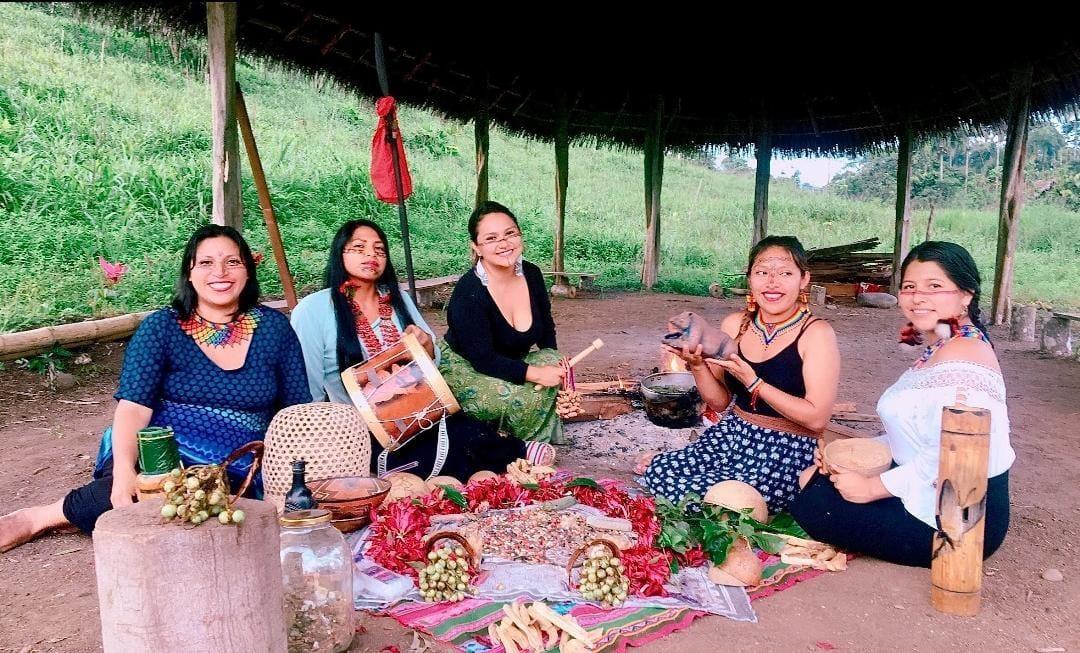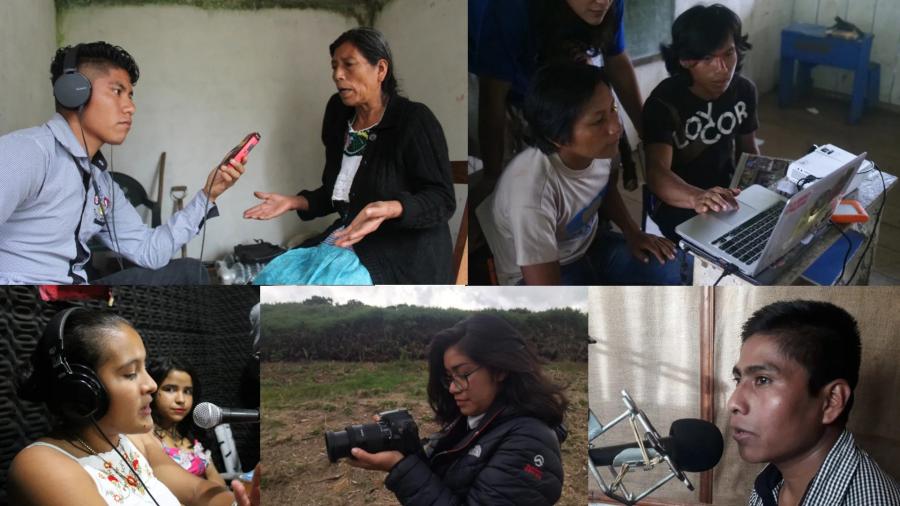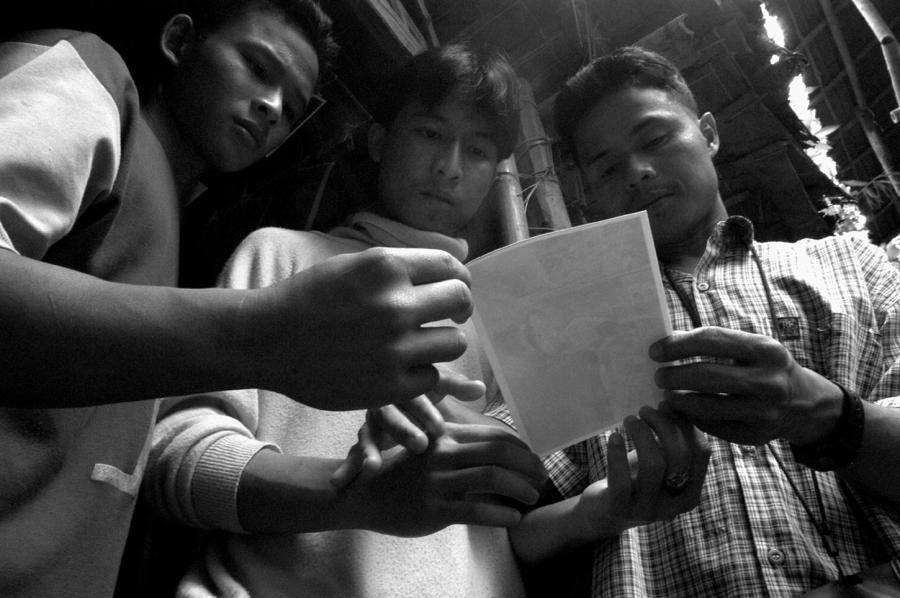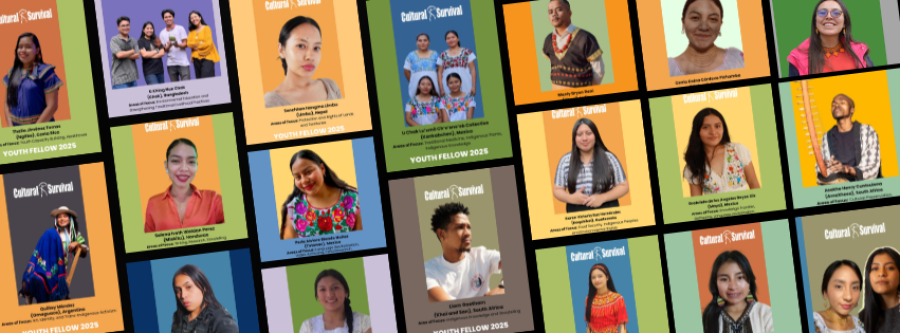
According to reports by UN Women, one in three women has experienced some form of sexual or physical violence. Violence against women and girls happens in many different contexts, including times of both peace and conflict, natural disasters, humanitarian crises, and pandemics. It can happen within the family or community, or outside in broader society.
The many forms of violence against women and girls, whether physical, sexual, spiritual, cultural, emotional, psychological, verbal, or economic, have roots in patriarchal power structures. Racism, exclusion, and marginalization are a result of colonialism. Much of this violence and inequity is caused by a disruption in the continuity of ancestral values and traditions that hold together Indigenous communities.
Indigenous women in particular are at the forefront of a constant struggle for their rights. They frequently face barriers to accessing basic services such as health facilities, transportation, communications, and education. Gender wage gaps are a form of economic violence against women, along with a lack of access to land in communities where the property is not held collectively.
In the long term, a lack of education affects a woman's future ability to attain economic independence and potentially free herself from situations of economic violence. The impact of megaprojects and extractive industries are further contributors to physical, emotional, and cultural violence. These inequalities are exacerbated when Indigenous women, who have long been marginalized, experience violence based on their culture, language, or spirituality.
Resilient Communities in the Amazon Basin
Cultural Survival is committed to contributing to more resilient communities by directly supporting women’s leadership. We will continue uplifting Indigenous women according to their Indigenous values. We strive to support Indigenous women in being the decision-makers and protagonists of their own stories and taking participatory roles that they choose and deserve. Through our Capacity Building Program, we aim to support Indigenous women’s leadership, technical capacities, decisions, struggles, healing, and victories.
As part of our efforts, from June to September 2022, we hosted a series of online workshops for Indigenous women frontline defenders in the Amazon Basin in which they built their technical capacities to continue defending their land through radio, photography, and social media, while also forming a network of strong and resilient Indigenous women.
The 13 virtual sessions targeted Indigenous women defenders of life and land from Colombia, Ecuador, Peru, Bolivia, and Brazil. The goal was to create a safe space for Indigenous women leaders and land defenders to come together and share knowledge and experiences and strengthen actions to develop work plans in their communities.
Our ancestral lands and Indigenous women's bodies are inextricably connected; in order to defend our territories, we must defend our own bodies. “We, as women, feel what our lands feel because we give life. Just as our lands have life and plants are born, all living beings...women give life. Cultivating our land gives us the clarity we need to see when we feel mistreated. When people say something bad about the jungle, the land, or Indigenous Peoples, anger arises in me. With that anger, I defend myself, because when [people] talk [badly] about the jungle, the land, and women, they are mistreating me. This is why I am here today, to learn from other women to see what we can do to save our jungle, land, and territory,” said Ofelia Salazar (Kichwa), workshop participant.
Other participants expressed how connecting with other strong women helped them raise their voices and communicate their message. Luz Hermilia Arango (Inga) said, “We Indigenous and Amazonian women need to deepen the conversation on territory, territoriality, land, and our bodies to tell the world about what we live, what we feel, our realities, and our constant struggles to resist extractivist projects. Those projects threaten our life and biodiversity systems and threaten our Indigenous Peoples and Nations worldwide. Compañeras, let’s be that fire to continue a non-stop struggle. This resistance starts with women.”
Photo by Indira Vargas presented during a virtual workshop on audiovisual tools.
Our ancestral knowledge, bodies, historical memories, and territories were some of the elements woven into the conversation. If our territory is healthy and thriving, our bodies will be the same, and when our bodies are better, our connection and care of our historical and ancestral memory will be stronger. Barbara González, training coordinator from the West Central Women’s Resource Center, explained, “The intrinsic relationship between women and nature is disrupted when extractive industries perturb the communities and the rivers and lakes are contaminated; when those rivers and lakes are contaminated, people living nearby drink contaminated water. That contaminated water is what we use for cooking, drinking, and washing our clothes. The disruptive action of how megaprojects interrupt the connection between Indigenous families and nature sickens our bodies, and we pass this illness to our children.” “When facing violence, young Indigenous peoples do not want to speak our language. The environmental contamination has also contaminated our cultures,” Salazar added.
Our bodies reflect our struggles, passions, worries, and resistance, and the workshops deeply considered the effects of violence on our bodies and cultures. We agreed that our bodies are a map showing our history. Our bodies reflect both positive experiences and traumas, and those traumas are passed down to younger generations. Rosa Pachuri (Chiquitana) reflected, “Just like our bodies suffer violence, just like our bodies are raped, that is how our lands and territories are violated. When this happens, women are the most affected.”
Photo by Ofelia Salazar presented during a virtual workshop on audiovisual tools.
“We know that cases of sexual violence increase when extractive companies [and alcohol] enter communities. The community's internal dynamics begin to change, which puts women and girls most at risk. Compañeras, no one is going to take care of their home better than oneself, and no one will take care of the territory better than oneself; that is why the leaders of the communities are so important and need to be empowered so they can steward their territories. International organizations, government, and institutional actors are important, but the power of territorial defense lies in the empowerment of communities. And for communities to be empowered, individuals—women—have to be empowered,” said González.
Listening to women land defenders from the Amazon Basin sharing their stories of how their territories are abused is the first step in breaking the cycle of violence against the land and our bodies. Communication tools such as social media, photography, videos, and radio are important and powerful spaces where women’s voices are much needed. When informed women stand up for their rights, these same women will collectively reject unbalanced power relations and violence.
Photo by Sonia Oliver presented during a virtual workshop on audiovisual tools.
The participants of the workshops commented on how this project helped them understand the reality of other women struggling to find leadership spaces and dealing with issues affecting their communities. They expressed satisfaction with the experience of getting to know other women from different regions and recognized the value of including both a technical component and the opportunity to connect with other women doing meaningful work in other territories.
Cultural Survival rejects all forms of violence, and specifically violence against women. We consider it essential to recognize and celebrate women's contributions to their communities' social, economic, and political lives. We recognize that women’s participation is essential to Indigenous resistance movements. Indigenous women, mothers, sisters, and elders, in their roles of caretakers and life-givers, are responsible for ensuring a healthy diet; providing traditional medicines and healing practices; sustaining household economies; and taking care of the lands, waters, and sacred places. The transmission of Traditional Knowledge and Indigenous practices with the land nurture the life of all living beings.
As a group of Indigenous women land defenders united in a virtual space, we recognized that if our lands and territories are healthy, we are healthy. We believe that advocating for Indigenous women’s participation and considering the intersectionality between gender and Indigenous cosmovisions is crucial for the overall well being of our Indigenous communities. We must include Indigenous women’s voices as important courageous political actors in resistance and defense of the land.



